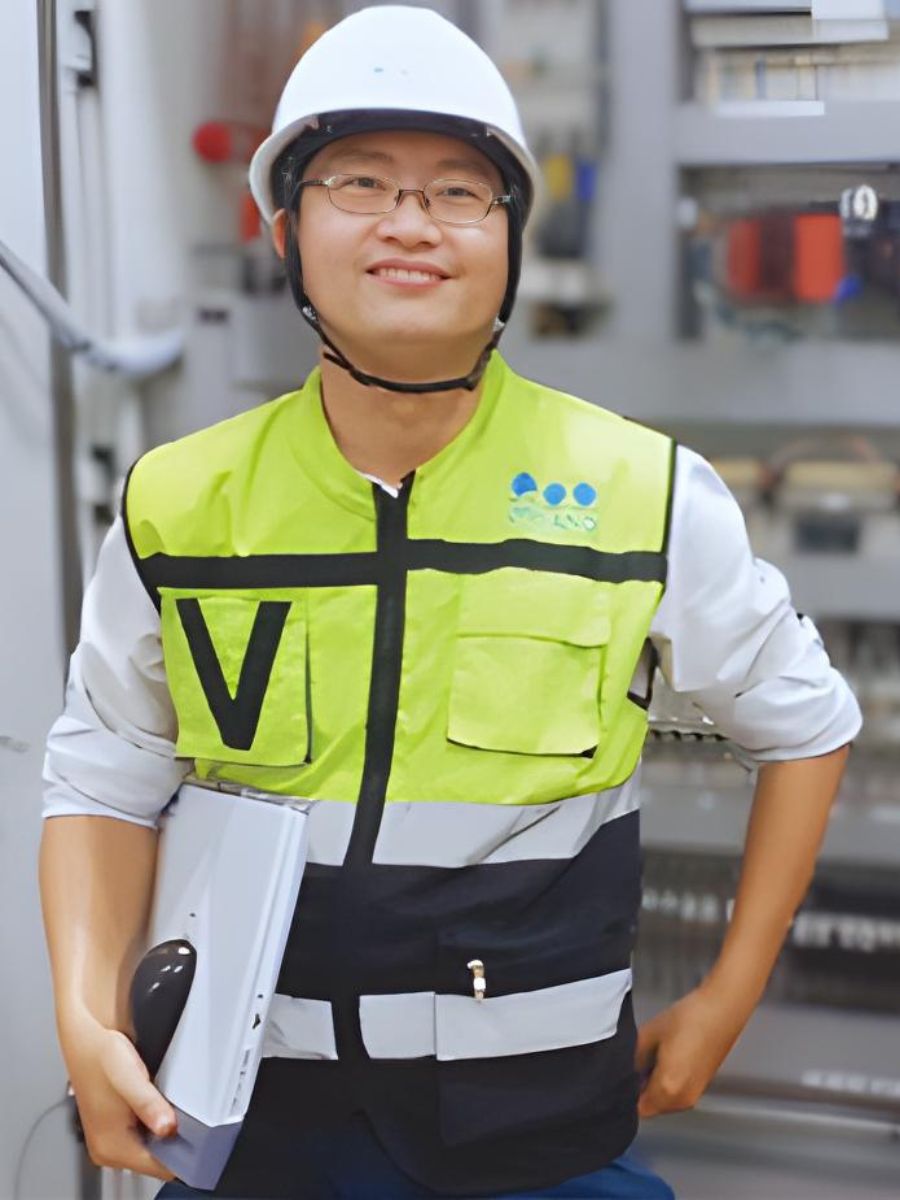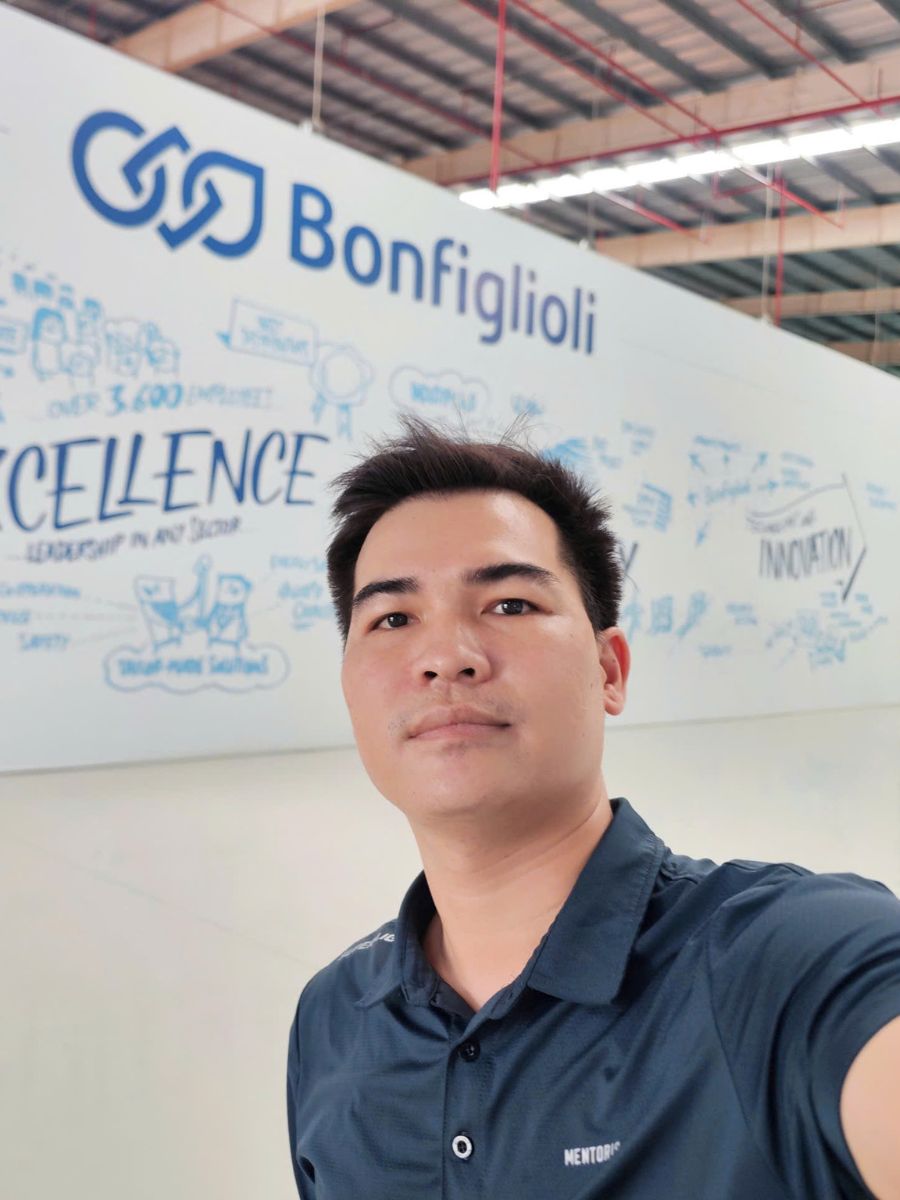Program
Electrical Engineering
Length of time
4 years
Program code
7520201
Tuition fees
VND 27.000.000/year*
Minimum required accumulated credits
187 credits
(quarter system – 3 semesters/year)
INTRODUCTION
4 năm
187 credits (quarter system – 3 semesters/year)
VND 27.000.000/year*
*Tuition fees are guaranteed not to increase for four years from the date of enrollment
Electrical Engineering plays a crucial role in national economic development. All strategies such as digital transformation, technological transformation, the development of smart industrial zones, and green and sustainable energy rely on a stable, synchronized, and high-performance electrical infrastructure.
The Bachelor of Electrical Engineering program at EIU focuses on providing fundamental knowledge in electricity, electronics, power electronics, power supply, and automatic control. The curriculum is designed with a balance between theory and practice, helping students master theoretical foundations while developing professional skills. Students gain core knowledge of the field and can choose between two specialized pathways: Power Systems and Smart Grids or Renewable Energy and Power Electronics.
Specialized training orientations in Electrical Engineering:
- Power Systems and Smart Grids: Design of industrial and civil electrical systems; automation in power systems and industrial production; optimization of power grids and efficient use of both renewable and conventional energy.
- Renewable Energy and Power Electronics: Design of renewable energy systems (wind power, solar power); automated monitoring and data acquisition of energy systems; research and application of power conversion technologies (power electronics).
About the School of Engineering

Offering majors in Electrical Engineering, Mechatronics Engineering, Automation and Control Engineering, Electronics and Telecommunications Engineering, and Mechanical Engineering, the Faculty of Engineering focuses on enhancing learners’ capabilities and creating added value through highly integrated and continuously updated training programs.
PROGRAM HIGHTLIGHTS
All students will achieve a minimum score of 6.0 in IELTS before graduation.
Students can join programs that include lots of practical hours and study in a system of extensive practice rooms and laboratories equipped with modern machinery and devices with technologies similar to those used by businesses.
Students are able to study and intern at top domestic and foreign companies from the third year.
Students have the opportunity to conduct their undergraduate thesis with the help of faculty members and carry out Capstone projects with businesses.
Program learning outcomes
Upon completion of the program, students will be able to achieve:
PLO 1. Apply knowledge of political theory and social sciences, along with an understanding of the law, to life and professional practice; demonstrate awareness of national defense and security to foster patriotism; and acquire knowledge of physical training to improve personal health.
PLO 2. Apply knowledge of mathematics, natural sciences, and engineering to describe, calculate, and simulate processes, components, and systems in the fields of electrical and electronic engineering.
PLO 3. Identify, formulate, and solve engineering problems such as analyzing, calculating, and evaluating processes, components, and systems in electrical and electronic engineering.
PLO 4. Design a system, component, or process that meets desired requirements within realistic constraints, including economic, environmental, social, policy, ethical, health and safety, manufacturability, and sustainability considerations.
PLO 5. Communicate effectively in oral, written, and multimedia forms with stakeholders in both technical and social contexts; use English effectively in professional and technical communication.
PLO 6. Demonstrate the ability to work independently as well as collaborate effectively in teams; manage tasks efficiently to ensure objectives and plans are achieved.
PLO 7. Proficiently use engineering tools, equipment, and software to design, experiment, and practice engineering in the fields of electrical and electronic engineering.
PLO 8. Conduct comprehensive design, critique, and evaluation of professional work; effectively present technical issues; and demonstrate the ability to initiate startups and commercialize products in electrical engineering.
PLO 9. Recognize and uphold integrity, ethical responsibility, and professional conduct in technical contexts.
PLO 10. Recognize the necessity of lifelong learning; independently pursue and research new knowledge, and continuously develop professional expertise.
Study Environment
Job Opportunities
Graduates in Electrical Engineering are fully capable of working at power companies, power plants, enterprises, industrial zones, export processing zones, high-tech parks, and multinational corporations.
Potential career positions include:
- Electrical – Electronics Engineer in fields such as: industrial and civil power systems, industrial automation systems, renewable energy systems, and power electronics;
- Manager in specialized fields;
- Researcher at research centers, institutes, training institutions, or pursuing further graduate studies;
- Entrepreneur and leader in the field of engineering.
CHIA SẺ TỪ CỰU SINH VIÊN

Nguyen Quang Luc
CSV khóa: 1
Khoa: School of Engineering
Công việc hiện tại: E&IC Engineer at Organo Việt Nam
“With the knowledge and skills I gained from EIU, I feel very confident at work, and this has been clearly reflected in my current job. It took me very little time to adapt and integrate into the working environment. The experience and English proficiency I acquired have also supported me greatly in developing my career.”

Nguyen Anh Duy
CSV khóa: 1
Khoa: School of Engineering
Công việc hiện tại: Technician Supervisor at Intel Products Vietnam - SHTP HCM
“The School of Engineering is well-equipped with modern facilities, and the practice-oriented curriculum allows students to gain substantial knowledge and skills before graduation. The lecturers are enthusiastic and highly knowledgeable in their fields. Both the faculty and the university genuinely care for and support their students. The program’s practical approach provides a solid foundation that helps graduates quickly adapt and grow in the real working environment.”

Nguyen Thanh Hiep
CSV khóa: 5
Khoa: School of Engineering
Công việc hiện tại: Manufacturing Engineer at Parker Meggitt Vietnam Company
“Studying at EIU was definitely the right decision for me. What convinced me most were the modern facilities, machinery, and equipment dedicated to engineering. The learning environment at EIU gave me the opportunity to experience real working conditions through site visits and long-term internships at major engineering companies. EIU equipped me with the essential skills to become an engineer, both in terms of technical expertise and language proficiency, through continuous projects throughout my studies. I had the chance to practice a wide range of professional skills, not only in automation but also in related fields such as mechanics and electronics.”

Hoang Duc Giang
CSV khóa: 4
Khoa: School of Engineering - Control and Automation Engineering
Công việc hiện tại: Process Engineer - R&D plant support Engineer, Bonfiglioli Vietnam Co., Ltd
“In today’s era of global industrialization, the field of Engineering always requires a strong and high-quality workforce. Besides having a solid technical foundation, engineering students also need to equip themselves with essential soft skills to quickly adapt to the dynamic international business environment. I believe these are exactly the outstanding advantages that EIU engineering graduates possess. I wish you all the best in choosing your true passion and achieving great success in your career!”

























